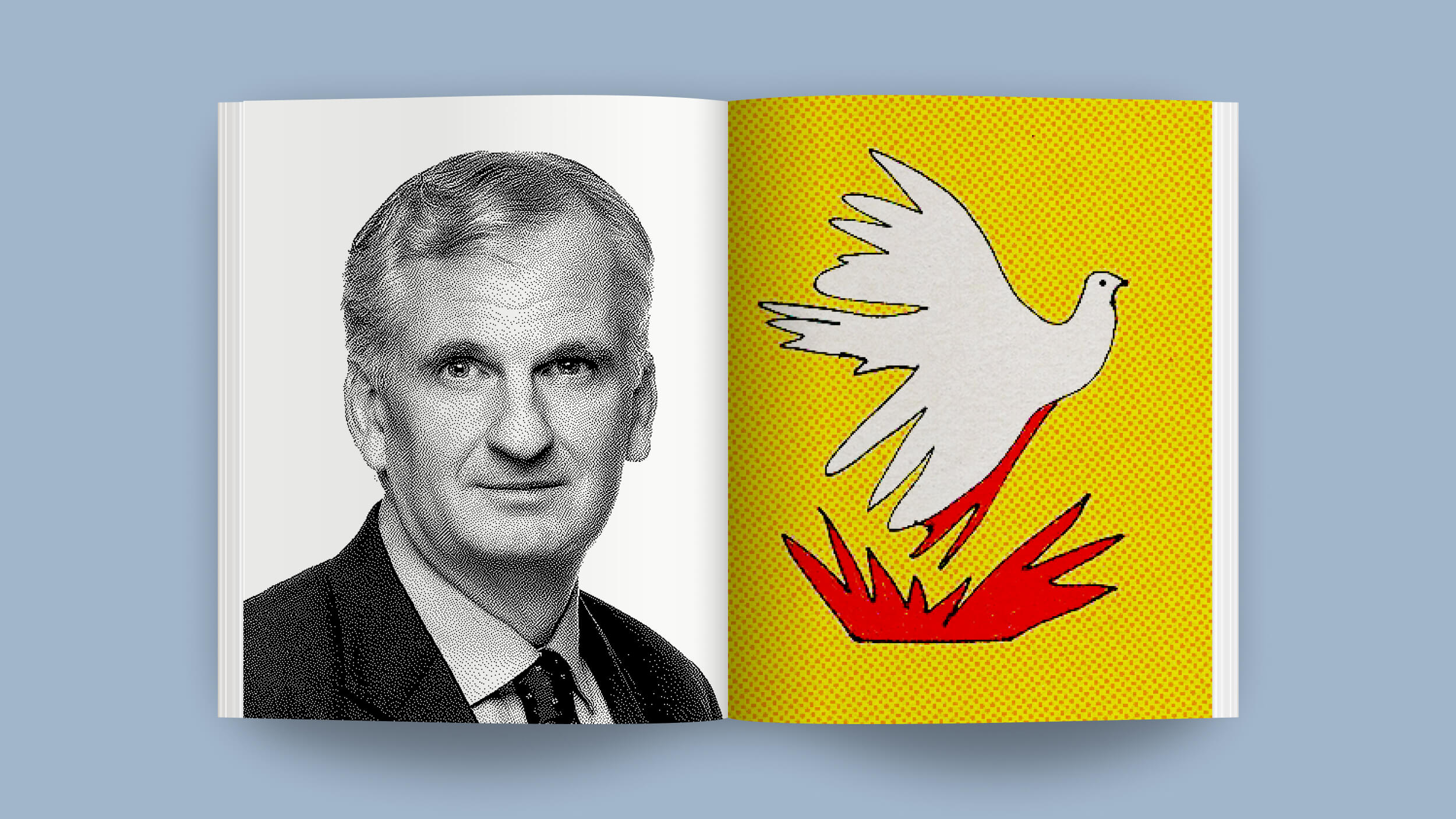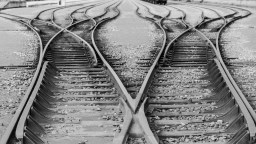Has the constant barrage of political news got you down? Yale University historian Timothy Snyder reminds us that looking at things from a historical perspective—and comparing your own perspective to this—can help you from becoming overwhelmed… and keep your emotions in check when you browse your newsfeed. Snyder’s most recent book is The Road to Unfreedom: Russia, Europe, America.
Timothy Snyder: History is actually the one thing I think which allows you to get out ahead. It’s very ironic, because when people think about history they think, “Well, history means that things are going on in the world and a historian is off reading dusty books,” which, fair enough, I would love to be reading lots of dusty books right now. I will concede the point.
But when you’ve read all those dusty books, what happens is that you have the ability to see certain patterns, you have a sense of what fits together and what doesn’t fit together.
Isaiah Berlin wrote an essay on the possibility of the scientific history, in which he said that “history is not about knowing what happens, it’s about knowing what can’t happen.” That is extremely useful.
So a historian will never look at a problem and say, “This is entirely new,” a historian will look at a problem and try to find the familiar aspects of it.
And that’s a very big advantage over other forms of analysis, because if you look at something and say that it’s totally new, that disables the mind right away, it also tends to disable, I think, political action.
Because if something is totally new it’s very easy to take the next step and say, “Well if it’s totally new then what can I do about it?” Or you can say, “Since it’s totally new all things are permitted,” which can also lead you in some really unproductive direction.
So the first thing the historian will do is we’ll say, “Whatever this problem is, it’s not entirely new.”
When a historian is confronted by something very surprising like the 2016 campaign in the United States, the historian is likely to say, “Well, the things that this candidate is saying aren’t true, but the possibility this kind of campaign could work is a real possibility.”
So the historian is freed from, or should be freed from the conviction of the day, and the historian automatically looks back to other moments where similar things like this coalesced.
So for example, we’re in a second globalization. There was a first globalization in the late 19th and early 20th century. The second globalization began, our globalization began, with all kinds of promises that technology and export-lead growth would lead to enlightenment and liberalism—the first globalization did too. The first globalization crashed. It crashed into the first World War, the Great Depression, the second World War, Stalinism, the Holocaust.
A historian looking at today won’t think “Well that whole pattern is going to repeat itself,” but the historian looking at it today can say, “Yeah, a politician who says that globalization is a problem not a solution, a politician who says that globalization is a matter of particular people plotting against us as opposed to objective threats to the country or objective problems, that kind of politician has a chance. That can work. Things like that have worked before.”
And once you see that it can come together that way, it’s not that you’re sure, it’s not that you predict it (although I have made some predictions that were right), but it’s more that you can see it coming together, and then that allows you to get out ahead, and you can think, “Okay, well, if this is going to come together this way then I can also steal from the past people’s correct reactions to it or people’s wise reactions to it. I can use those things from the failure of the first of globalization, I can just borrow them, I can now extract them and put them in the 21st century,” which is what I did in On Tyranny. So rather than saying, “Okay I’m going to wait” – because by the time the pattern actually coalesces it’s too late! You have to see that the pattern might be coalescing and then start messing with the pattern, that the way that you see in coalescing comes from history, and the tools that you use to start messing with it also come from history.
So in that way, ironically, history can allow you to get out ahead of something, whereas the journalists naturally have to describe that—that’s their job. The social scientists they’re going to wait to categorize it, and they’re kind of trapped.
I mean another irony is that historians are comfortable with novelty, because we know things change all the time. When your perspective is a thousand years or even a hundred years, you know stuff changes. You know there are turning points.
And you know that the stuff which people thought was unbelievable yesterday will not only be believable but will even seem normal today. Any historian can see that. So that gives us a certain edge I think.
The second thing that a historian will do is that a historian will be skeptical about sources.
So if you say “the problem is X”, a historian will instantly cock his or her head and think, “Okay well, this person says the problem is X, but let’s cast our minds out immediately to try to think of what the other 15 relevant perspectives on this problem are. Is it actually a problem? Maybe it’s something which is desirable from certain points of view.”
So that’s a methodological reflex that, whatever your first person perspective is, that’s not the truth for me. The truth automatically has to come from comparing your perspective to a whole bunch of other perspectives. And that’s useful also because it can preserve the dynamism and the urgency of something while taking some of the subjective spin from it.
So ideally a historian or a historically-trained person is less likely to be played by the presentation of a problem and more likely to skeptically figure out what its contours are.
And the third advantage that historians have, and maybe this is the one which I find to be most relevant in the present, is that historians see time as a flow or as something which is continuous. And this is incredibly important now, because the way that the news cycle works or the way that what I call the “politics of eternity” works is that you get your brain bludgeoned every day by the emotions of the moment as transmitted by very skilled political actors through very efficient media, and the result is that it’s so easy to either be elated or outraged every day and to experience the day as a kind of complete unit—where you wake up, you’re shocked, you’re outraged, and then by the end of the day you’re dissipated, you’re exhausted, and then you just begin this cycle again.
Historians don’t believe in cycles, or at least good historians don’t believe in cycles.
Historians think that there are long-term patterns; however exciting or however exhausting or however terrifying the thing is today, it’s part of some longer sweep.
So to give an extreme example, even nuclear war—so in the last few months the subject of nuclear war has come up from all kinds of directions.
Even nuclear war has a history.
There’s only been one, and that was in 1945, and there have been a lot of moments where it was likely or less likely (like Cuba). So even something which is dramatic and which is, as it were, designed to shock you out of thinking in time, even that can be put in some kind of context.
In other words the weapons that are designed to get you to stop thinking, like “Let’s be afraid of the foreigners” or “let’s be afraid of nuclear war,” if you think about those threats over time as part as some kind of larger flow you’re less likely to be disabled, and you’re more likely to distinguish the rhetoric from what might actually be the risk.






